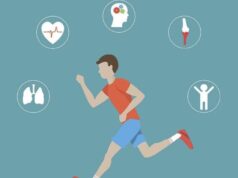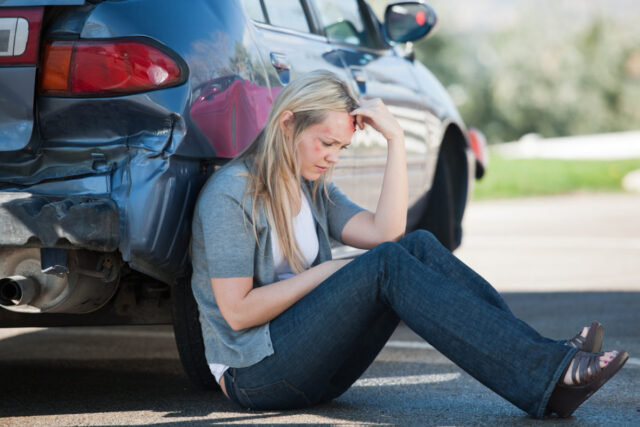
A serious car accident can cause grave injuries to both body and mind. The difference is that most people know to get immediate help for their physical injuries but often forget to attend to their mental health needs. These can be just as urgent a concern.
In the aftermath of an accident, for instance, many people consult a medical doctor, physical therapist, massage therapist, or chiropractor. On the other hand, few victims of car accidents know to treat the injuries that may have negatively impacted their mental health. Instead, people whose mental and emotional health have suffered from car accidents may avoid dealing with their symptoms entirely and/or cover them up with unhealthy destructive behaviors.
PTSD and Flashbacks After Serious Car Accidents
Neglecting care of one’s mental health after a serious car accident can be dangerous, though. Studies show that almost half of all people who have experienced car accidents develop some form of post-traumatic stress disorder (PTSD). (Explore how people are finding relief from symptoms of PTSD and a better quality of life at FHE Health.)
One of the most disruptive and impairing symptoms of PTSD are flashbacks. Chronic flashbacks can cause severe anxiety when driving or traveling as a passenger in a car. Flashbacks can become so frequent and disturbing that they result in depression accompanied by a sense of helplessness and hopelessness. Those who suffer from PTSD often carry guilt and shame related to their fear of being judged as weak or dependent. Victims of flashbacks may even turn their anger onto others and become aggressive or abusive.
Flashbacks from car accidents can come and go when one least expects it. These flashbacks may involve vivid images of the moments immediately before and/or after the accident. They may also contain intense emotions like fear, shock, and/or sadness from seeing oneself or loved ones seriously injured.
Sometimes specific persons, places, or situations trigger flashbacks. At other times, they have no specific triggers and can come on randomly and very unexpectedly at the most inopportune time. Flashbacks may continue to develop much later after the accident, anywhere from months to years.
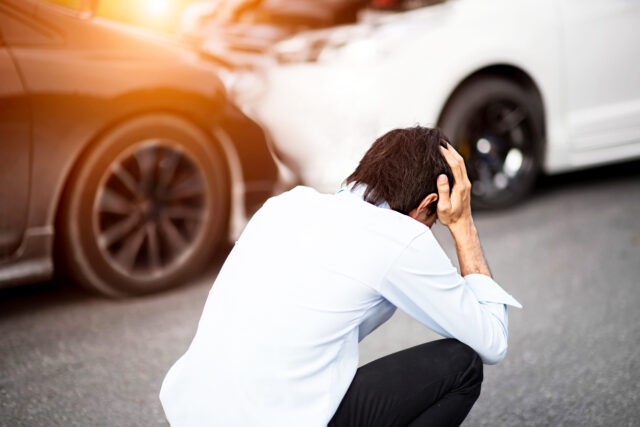
The Negative Effects of Untreated Flashbacks
Untreated flashbacks can wreak havoc in one’s life in many ways. The most dangerous effect happens when drivers are experiencing flashbacks while they are on the road. Suddenly recalling a traumatic image from a car accident may cause drivers to swerve into other lanes and hit other cars. A driver may slam on the brakes suddenly in a reactionary response, risking being rear-ended by the vehicle behind them.
Flashbacks can become nightmares which prevent people from getting a good night’s sleep. They can also become a barrier to emotional connection and closeness with family, friends, and significant others, due to symptoms of disengagement and disconnection in relationships.
In general, one of the common ways people deal with PTSD is to avoid anything that might remind them of the trauma. Car accident flashbacks can be more challenging to resolve because it is often difficult if not impossible to avoid triggers. Most people cannot simply avoid driving again because they need to commute to work, run errands, or attend social engagements. Finding alternative means of transportation rather than driving can be difficult and unrealistic. Avoiding places where the accident happened may not be possible if the accident happened within the vicinity of one’s home.
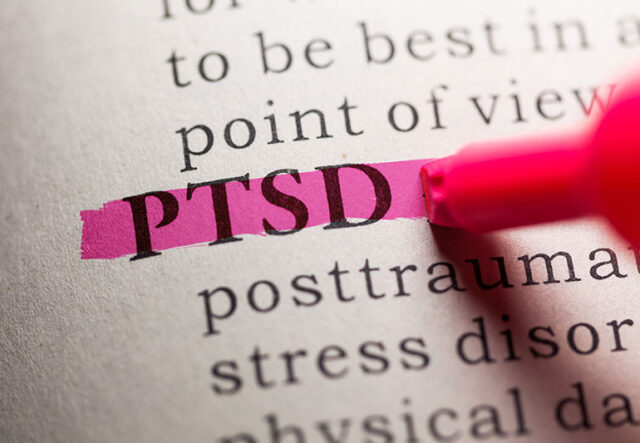
Ways to Manage Flashbacks After an Accident
Be careful not to minimize the damaging effects of flashbacks and know that there are healthy ways to deal with them. Here are some ways to manage flashbacks after being in a serious car accident.
Talk to a mental health professional. Therapists can use evidence-based practices that help with PTSD and flashbacks. Cognitive behavioral therapy (CBT) can help manage painful emotions by changing the thought process related to the accident. EMDR is a very effective trauma intervention that can use eye movement to re-process the flashbacks. Hypnosis may also be used to treat PTSD.
Reduce or remain abstinent from mood-altering substances. Some people may want to treat their flashbacks by numbing and suppressing them via alcohol and other drugs. As a depressant, though, alcohol will only serve to depress someone even more, and withdrawals may cause hallucinations.
Benzodiazepines may be prescribed by psychiatrists and general practitioners. However, using these medications while driving may be dangerous due to side effects like compromised reaction time, sleepiness, and difficulty focusing. Being sober allows one to be able to think more clearly and manage PTSD symptoms with rational, healthy behaviors rather than impulsive, destructive ones.
Build upon spirituality. When people get hurt or scared after being in car accidents, they may blame, question, or doubt God, their higher power or the universe. Rather than turn away from spirituality, lean in to it as a support. Use prayer after each flashback experience and ask God or a higher power for help through it. Meditate to find strength within to overcome the effects of PTSD. It helps to know and trust that a good and loving greater power is available and can be called on at any time for peace, safety, and security.

Practice mindfulness. Mindfulness activities help people to stay in the present moment rather than live in the past. Flashbacks remind victims of what has already happened, stealing their focus from what is actually happening in the present. Mindfulness Is practicing being in the present through breath observation, doing one thing at a time, drawing, or other tangible activities that keep the mind from wandering back into the past.
Use relaxation techniques. Stress can trigger more flashbacks, whether it is from the job, family issues, relationships, or traffic. When driving during rush hour or a traffic jam, play soothing music that helps calm the nerves. Use progressive muscle relaxation techniques to help loosen tension and re-engage focus on what is happening to the body in the moment. Visualization of a place that brings peace and joy can help to calm the anxiety that typically occurs in reaction to flashbacks.
Focus on the positive. After experiencing flashbacks, make it a practice to write down the positives and notice the silver linings in a gratitude journal. Focusing on the good things that happened from the accident, as opposed to the bad things, can help reduce PTSD symptoms. Even the smallest things for which one can be thankful can help calm fears of driving or other scary associations. Replace the negative flashback with a positive image that may have happened during that traumatic time, such as hugging a loved one or remembering the first responders or others who may have helped during that crisis.
Flashbacks from serious car accidents can be scary and sometimes drastically impair one’s quality of life. The good news is that this PTSD symptom can be effectively managed with treatment and the other simple tips listed above.
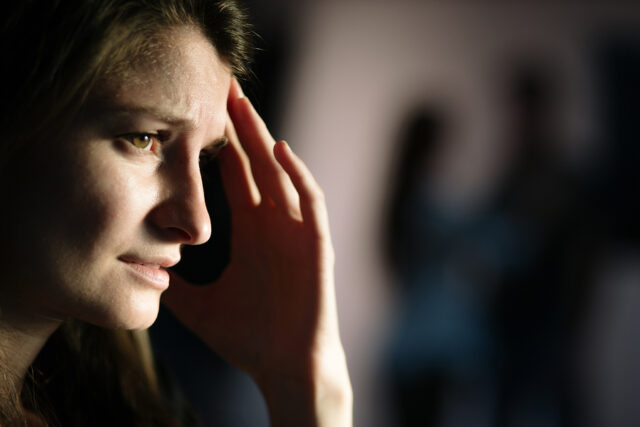
The article was provided by Dr. Sachi Ananda, PhD, LMHC, MCAP who directs a trauma-based treatment program for first responders, at the national behavioral health provider FHE Health.

